Filmmakers Dereck and Beverly Joubert show the process of filming episode two. See some of the most charming and stunning moments from behind the camera and hear more about the Joubert’s commitment to conservation.
Features
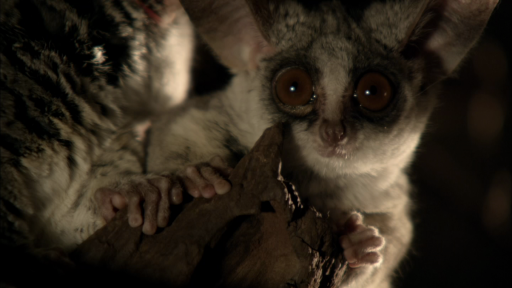
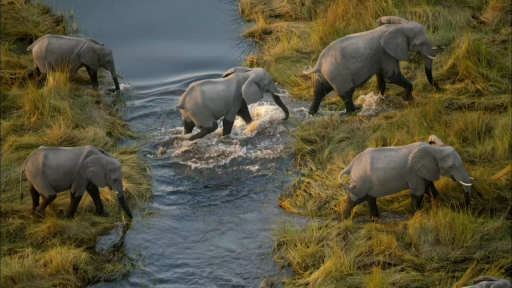
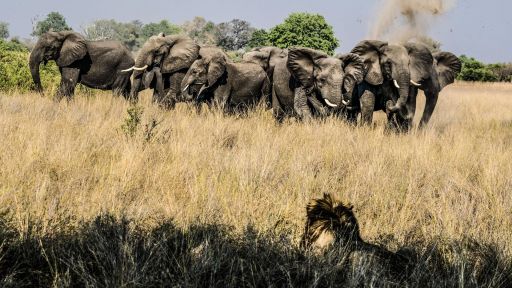
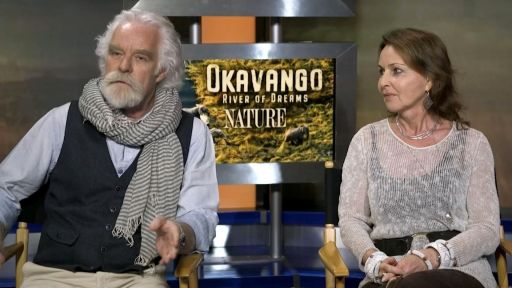
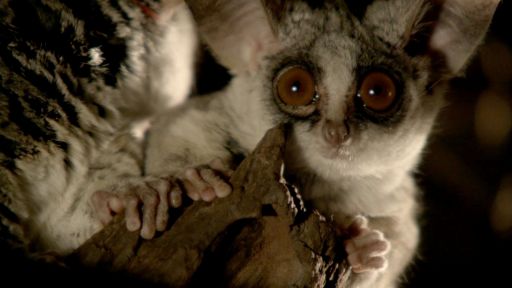
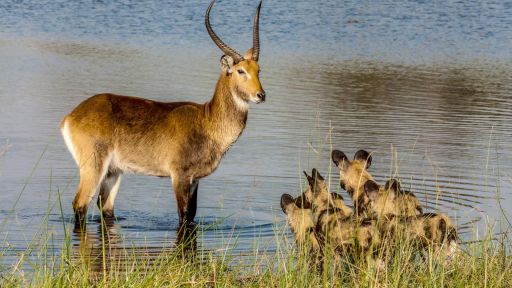
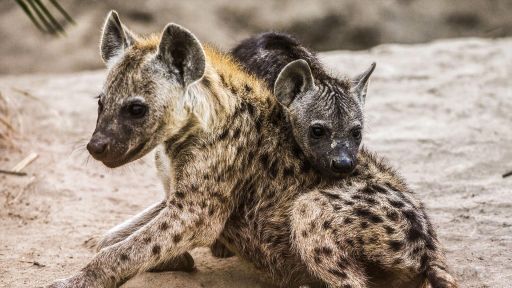
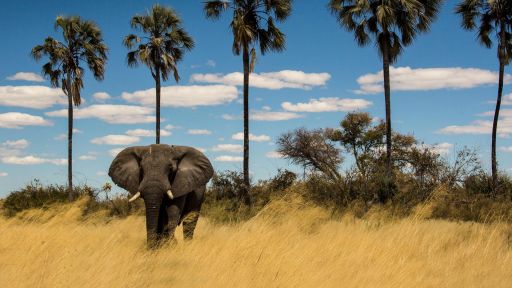
(birds calling) (wildlife sounds) (gentle music rises) (motor sounds) - [Dereck] In chapter one of our journey, we went underwater, into the field following big cats.
(soothing music) And now, we're up in the air.
(airplane motor sounds) Just to remind you, I'm Dereck Joubert, and with Beverly, we're exploring and filming the Okavango.
Trying to understand its very soul.
- [Beverly] We just wanna look for the soul of a place.
It's a project that has taken us over four years.
Good years, but not without some major mishaps.
- [Dereck] I'm pretty sure that what we're looking for is out there, somewhere, in this magical place called the Okavango.
It's just so beautiful.
The real danger is that, it's just so beautiful, and in many ways you have to see past that.
- [Beverly] That's right.
It's hard to fight that familiarity.
You stop seeing the gems right in front of you.
We live here, so the danger is we start taking it all for granted.
(inspiring music) (water splashing) What we do best is find the top predators and basically move in and try and understand what they do.
We find it's the best reflection of what the ecosystem is all about.
- [Dereck] We use different lions to tell us different phases of the river.
Look into the eyes of a male lion, and you know the power, and yet vulnerability.
The fact that there are now fewer than 3,500 male lions left in Africa, and still being hunted and poached relentlessly.
- [Beverly] We're concerned that we have lost more than 95% of lions in Africa, just in our lifetimes.
(water sloshing) When we came across this place years ago, there were some lechwe.
But today there are literally tens of thousands of them.
And again, we suddenly started noticing them.
So it's that thing where you have to constantly recalibrate, or miss moments.
So while we had one storyline in mind, it changed completely, and literally became a central thread through the series.
You have to think on your feet and adjust constantly.
(inspiring music) - [Dereck] A three part series would have just been impossible to shoot all alone.
So we hired in specialist cameramen, like Luke and Taylor here, to cover some additional high-speed moments.
Like this magnificent male lion fight.
(lions roaring) My personal favorite is a slow motion roar where his whiskers start vibrating.
(lions roar) The Okavango is, of course, underwater half the year.
So we needed half a dozen boats, and vehicles and planes, and as many cameras.
It's a hard place to work.
(water sloshing) (gentle piano music) (elephants trumpeting) - [Beverly] We filmed elephants for most of our lives.
They are amazing, relaxing, invigorating and stimulating to be around.
It is complete trust if you treat them with respect.
- [Dereck] There is an increasing divide in the world between those who think it's okay to kill elephants and those who think this is a cruel insanity.
That old colonial era of shooting everything you can for fun, for sport, is over I hope.
We're also hoping that our film will be a showcase for communities that live with elephants to show them that more gentle side.
Certainly without elephants the Okavango would be soulless, just a place on the map.
(tranquil music) - [Beverly] Being close and listening through a powerful microphone actually transports me into their family, it's like I'm there walking with them.
(gentle music) (birds chirping) Getting stuck is all a part of the working conditions here.
(curious music) Calling for help takes it to another level in our family.
(monkey calls) Dereck hates imposing on anyone.
But out here, this incredible mosaic of flooded swamp and grassland, a small moment can escalate and turn into a nasty episode of 'Survivor' all too quickly.
(high exciting music) (quiet) Besides, we have work to do.
(gentle music) (water sloshing) (birds chirping) (hippopotamus growls) Turner and his crew did all the drone work.
And the work on hippos from the air places them so clearly in their environment.
He covered land, and under water.
That eerie half-world of the shallows.
(water gurgling) (gentle music) (birds chirping) - [Dereck] Perhaps it's all about the space, really.
The things that live in the water, and sometimes get annoyed with the intrusion.
(elephant snorts) (water sloshing) (elephant roars) - [Beverly] Oh yes, a lot of remote cameras. 50 at least.
The difficult issue is, who exactly gets the credit for a shot like this.
(curious music) It depends on who sets it up, makes final adjustments, switches on, and off.
(bright, curious music) (gentle monkey sounds) Directing.
Checking focus.
(bright, curious music) Reviewing takes.
And calling 'Cut!'. - [Dereck] There's some major influences out there.
And we've spent thousands of hours, just sitting with buffalo to understand exactly what they do to the Okavango.
(urgent music) (animal sounds) (music swells) We have a certain fascination with them, of course.
But also, with their somewhat obsessive relationship with lions.
(music swells) For me, perhaps the soul is in the details.
The water, the droplets, the small things, as well as the big.
Getting on the water, and in the water, and up close.
- [Beverly] The water is the story.
It has magic and mystery. Legends of rain queens and gods.
And it has inspired people for centuries.
- [Dereck] It wasn't a croc or elephants that nearly called an end to the production, a hippo came out of the reef just in front of Beverly, and decided to lead left, not right.
Right would have been bad.
Hippos and elephants shape the Okavango.
These are the architects of the rivers, and the channels.
The whole landscape.
Reducing their numbers would be like the human body making do with less blood in its veins.
Or fewer breaths per day.
Elephants literally make the Okavango fit and healthy for everything.
- [Beverly] There are fewer than 20,000 African Skimmers left in the world. They come here to breed.
There is over 9,000 square miles of paradise here.
Every piece of it vital to everything else.
I drove, while Dereck basically hung on, with a phantom high-speed camera to capture Carmine Bee Eaters walking around two male lions.
With Taylor getting the tracking shots, it's a spectacular moment.
- [Dereck] It was such a magical moment that Beverly got distracted and drove into a hole, and that smashed the camera.
The soul of the Okavango is certainly not in one of the holes out there.
We've checked each one of them.
(gentle, stirring music)
